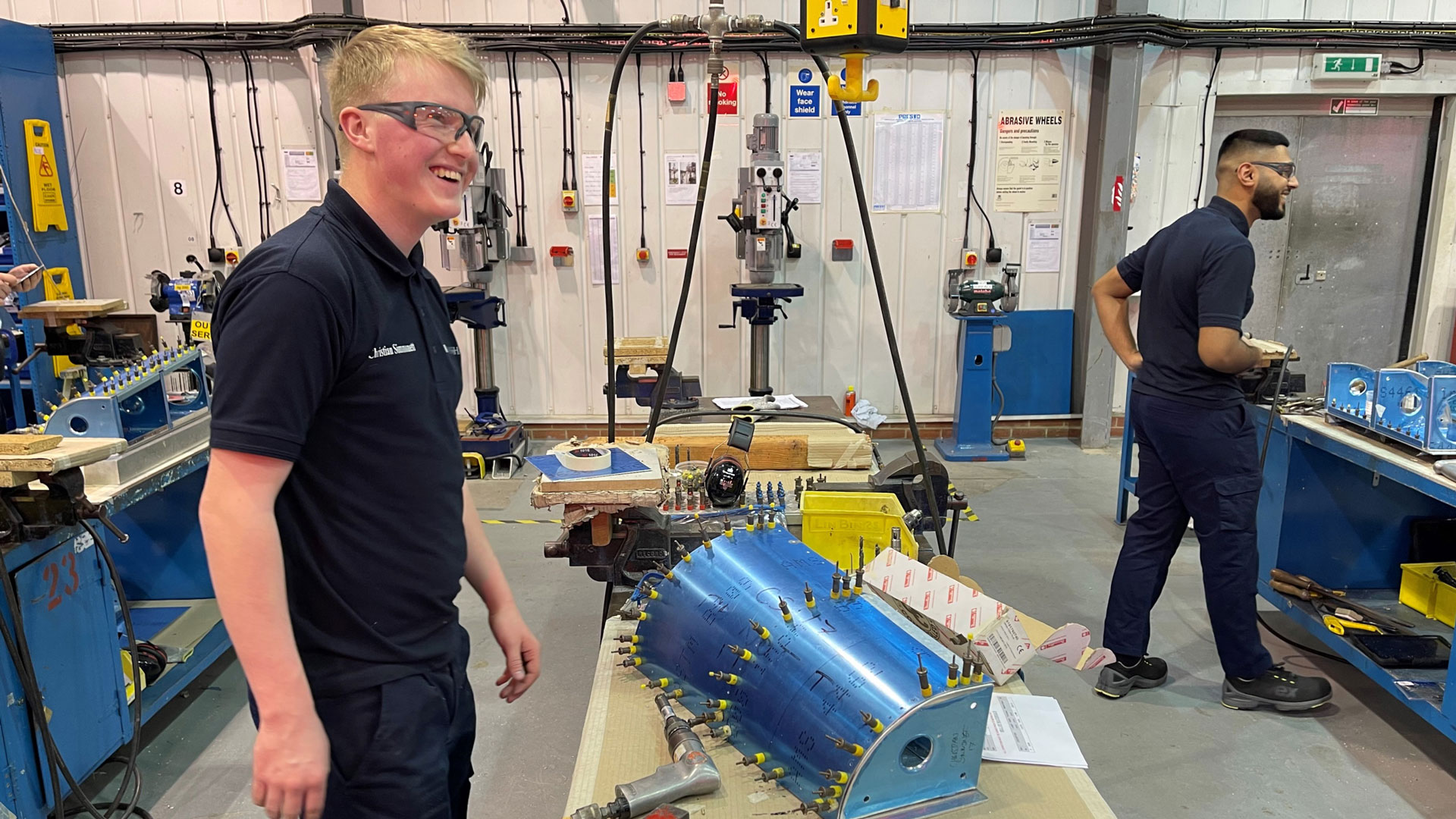
Today marked the final day of training in Marshall Skills Academy’s workshop, with apprentices and instructors gathering to bid the building a fond farewell.
Since 2004, the workshop building has been the first point of call at the start of every Marshall apprenticeship. For nearly 20 years, it has provided an environment for trainers to instruct and observe new apprentices in their initial few months, which is when they pick up some of the basic hand skills that will serve as a foundation for their career. As a result, many apprentices come to remember the workshop building fondly as the backdrop for an exciting and formative period in their early careers.
Once the workshop portion of their training is complete, an apprentice will formally join their employers on-site for the first time while progressing to a period of theory-based classroom and online learning with Marshall Skills Academy.

"It has been great seeing the apprentices' progression, sharing and comparing their experiences with my own,” says Matt Siggens, Head of Aviation Excellence at Marshall Skills Academy. “They leave the workshop phase with the highest level of foundation hand skills in the industry, as they join their employer for the next phase.”
Michael Oldfield, a Bombardier apprentice in his first year with Marshall Skills Academy, explains: “The workshop stage covers everything from filing to guillotine, drilling, using different tools like rivet guns, and knowing what rivets to use.”
Until this week, he and the other first-year apprentices have been working on their final workshop project: an exercise known as the bread bin. “The bread bin applies everything we've learned in the classroom and workshop, but with an extra challenge,” says Michael. “We have to do it all on a curve as opposed to a flat surface, since obviously everything in an aircraft is curved.”

First-year apprentice Christian Simmonett is part of the final cohort to complete his workshop training in the current building. Christian describes the experience of coming into contact with hand skills training for the first time. “Once we'd had our induction, we basically got right into it, which was really good,” he says. “We've been learning how to use different tools and what their purposes are, because I've never used them before in my life. It's just nice to get introduced to new tools and new ways to do things.”
As veteran Training Facilitator Robin Lipscombe notes, familiarity with these basic tools and skills will remain relevant well into the future. “It's hard to change the basics of engineering,” Robin says. “The curriculum has changed with different exercises added over the 50 years I've been teaching, but the actual core skills of manipulating metal and using tools are exactly the same as they were 50 years ago.”
The workshop stage also serves as an introduction to the responsibilities, routines and soft skills encountered every day in working life. Since apprenticeships are effectively first jobs in most cases, this kind of personal development is every bit as important as picking up technical skills.

As Robin explains, “It's not just about learning new skills, it's about life skills. Learning comes out of doing the work. It's an induction to getting up every morning, getting here on time, and making sure you're prepared for work.”
Christian, reflecting on his own experience, adds: "I don't think it comes down to just hand-based skills; you've got to learn perseverance and knowhow, because things aren’t going to go right every time, and when something doesn’t go right you need to know what to do to fix it.”
The closure of the workshop building marks the end of an era and the beginning of a new one for Marshall Skills Academy. From this year onwards, all practical and classroom apprenticeship training will relocate to a spacious and fully modernised facility on the site of the former Cambridge Airport Jet Centre (which itself moved into new and updated quarters recently).